Ever found yourself hesitating to ask a guest to remove their shoes, only to be told by someone, like your mother-in-law, that you’re being discourteous? You’re not alone! It’s a surprisingly polarizing topic that touches on cleanliness, cultural customs, and hosting etiquette. So, is it really rude to request this, or is it simply a matter of personal preference?
Understanding the Cultural Context of Shoe Removal

One of the biggest factors shaping opinions on this issue is culture. In many Asian and Scandinavian households, removing shoes is not just polite—it’s a must. It’s seen as a sign of respect and a way to keep homes clean and sacred. On the other hand, many Western cultures don’t place as much emphasis on this practice. Guests often keep their shoes on indoors, and requesting otherwise might be considered unusual.
Does this mean you shouldn’t ask guests to remove their shoes if it’s part of your household tradition? Absolutely not! The key is recognizing that cultural norms differ. Being aware of these differences can help you approach the topic in a way that’s both respectful and confident.
Health and Hygiene: The Case for Bare Floors
If you’ve ever looked at the bottom of a pair of shoes after a long day, you already know they’re not exactly clean. Shoes can track in dirt, bacteria, and allergens that could easily spread around your home. For families with small kids crawling on the floor or those with allergies, maintaining a shoe-free home can be a lifesaver.
Think about it: would you want the same shoes that trudged through public bathrooms or muddy sidewalks to stomp across your living room carpet? Probably not. Explaining this perspective to your guests can make your request feel less like an arbitrary rule and more like a thoughtful choice for the health of everyone in the household.
Does Hosting Etiquette Really Say No to Shoe Removal?
Traditional hosting etiquette often emphasizes guest comfort, suggesting that making guests feel at home should be your top priority. But modern etiquette acknowledges that it’s equally important to respect the host’s rules. After all, it’s your home, and you’re entitled to set boundaries.
The trick is finding a balance. Yes, you want your guests to feel comfortable, but you also want to feel comfortable in your own space. Asking guests to remove their shoes doesn’t have to be a big deal—it’s all about how you frame the request. Approach it with kindness, and most guests will happily comply.
Managing Family Dynamics: When Your Mother-in-Law Disagrees
Let’s face it: family dynamics can complicate even the simplest decisions. If your mother-in-law insists that asking guests to remove their shoes is “rude,” it can feel like you’re caught in the middle. So, how do you handle this without creating tension?
Start by having a calm conversation. Explain why this practice matters to you—whether it’s about cleanliness, cultural tradition, or personal preference. Acknowledge her perspective, but make it clear that this is a decision you’ve made for your home. Compromise can help here; for example, you could consider allowing exceptions for certain guests or occasions while sticking to your rule in everyday situations.
How to Politely Ask Guests to Remove Their Shoes
So, how do you actually ask someone to take their shoes off without sounding rude or awkward? It’s all about tone and preparation. Here are a few tips:
- Set the Tone Beforehand: If possible, let guests know about your shoe-free policy before they arrive. A simple mention in an invitation—like, “Feel free to bring comfy socks; we’re a shoe-free household!”—can go a long way.
- Provide Comfort: Make the transition easier by offering a designated shoe rack by the door and providing clean slippers or cozy socks for guests who might feel uncomfortable going barefoot.
- Use Polite Language: When guests arrive, frame the request as a preference rather than a demand. For example, “We usually ask everyone to leave their shoes at the door to keep things clean. Thanks so much!”
When you approach the topic with thoughtfulness, most people will appreciate your effort and won’t think twice about slipping off their shoes.
Balancing Tradition and Modern Practices
Incorporating traditions while respecting modern hosting practices can be a delicate dance. Traditional etiquette might emphasize catering to guests’ every need, but modern hosting often focuses on mutual respect and consideration. Striking the right balance means blending these approaches.
For instance, if you’re hosting a formal dinner party and you know some guests might find shoe removal awkward, consider making an exception for that event. But during casual gatherings or day-to-day visits, stick to your shoe-free rule. Flexibility shows thoughtfulness while still honoring your personal boundaries.
When Compromise Isn’t an Option
What if you have guests who outright refuse to take their shoes off, or your mother-in-law insists on overriding your rule? In these cases, it’s essential to stand your ground politely but firmly. Your home is your sanctuary, and maintaining its cleanliness and comfort is your right.

If someone disagrees, remind them that this isn’t about being “rude” or “discourteous.” It’s about creating an environment that works for your household. Offering alternatives—like slippers for those who prefer not to go barefoot—can help smooth over any discomfort.
Conclusion: Creating a Home That Reflects Your Values
Ultimately, asking guests to remove their shoes isn’t rude—it’s a reflection of your values and preferences. Whether you’re motivated by cleanliness, cultural tradition, or personal comfort, it’s entirely reasonable to expect guests to respect your house rules. The key is clear, kind communication and a willingness to accommodate others’ needs whenever possible.
At the end of the day, successful hosting isn’t about rigid adherence to etiquette or sacrificing your boundaries. It’s about creating an environment where both you and your guests feel respected and at ease. So, go ahead—ask politely, offer slippers, and enjoy a clean, happy home that truly feels like your own.
3 histórias surpreendentes de fazenda que você não vai acreditar que são reais

Heranças costumam ser agridoces. Mas para três indivíduos desavisados, elas foram portais para descobertas surpreendentes que mudariam suas vidas para sempre.

Apenas para fins ilustrativos | Fonte: Midjourney
Uma mulher decepcionada descobriu a verdade enquanto cuidava de uma fazenda deixada para outra. Um homem que comprou uma fazenda negligenciada por US$ 1.000 desenterrou uma história de partir o coração de um pai abandonado.
Outro descobriu o segredo dos avós enquanto honrava uma promessa sincera de reconstruir sua amada casa. Essas histórias notáveis provam que, às vezes, as riquezas mais extraordinárias não são medidas apenas em dinheiro. Elas são encontradas em lealdade, trabalho duro e honra ao passado.

Um homem trabalhando em sua fazenda | Fonte: Pexels
O testamento da vovó não me deixou nada até que eu descobrisse seu plano secreto
Quando a vovó faleceu, pensei que a fazenda, o coração da nossa família que vale milhões de dólares, seria minha. Passei minha infância trabalhando em seu solo, alimentando seus animais e aprendendo seus ritmos.

Apenas para fins ilustrativos | Fonte: Midjourney
Mas quando a advogada leu seu testamento, meu mundo mudou. A fazenda foi para minha prima, Felicity, uma mulher que passava mais tempo tirando selfies nos campos do que trabalhando neles.
“Sua avó te amava mais do que qualquer um, Diana”, o advogado garantiu, me entregando uma carta. Minhas mãos tremiam quando a abri, a letra familiar da vovó borrada em meio às minhas lágrimas.
“Minha querida Diana,

Uma mão enrugada escrevendo em um pedaço de papel | Fonte: Midjourney
Se você está lendo isso, chegou a hora de uma escolha. Eu sei que você ama esta fazenda, e ela tem sido tanto parte de você quanto foi de mim. Mas eu precisava ter certeza de que seu verdadeiro zelador surgiria. Eu deixei a fazenda para Felicity, mas você tem o direito de ficar pelo tempo que desejar.
Enquanto você permanecer, a fazenda não poderá ser vendida. Por favor, seja paciente. A segunda parte do meu testamento será revelada em três meses.

Uma mulher escrevendo em seu caderno | Fonte: Freepik
Com amor, vovó.”
Por que ela não deixou a fazenda para mim imediatamente? Ela não confiava em mim?
Olhei para Felicity, que estava sussurrando para seu marido, Jack. Palavras como desenvolvedores e lucro rápido chegaram aos meus ouvidos.
“Pegue o dinheiro e vá embora, Diana”, Felicity disse mais tarde. “Você pode começar do zero na cidade.”

Apenas para fins ilustrativos | Fonte: Midjourney
“Não é sobre dinheiro”, respondi, minha voz tremendo. “É sobre família.”
Seu desinteresse era evidente quando ela me jogou as chaves. “Como quiser.”
Voltei para a fazenda no dia seguinte. O trabalho era exaustivo, mas a terra, mesmo em seu estado cansado, parecia viva sob minhas mãos. As manhãs começavam antes do amanhecer com Daisy, a velha vaca que parecia entender cada palavra minha. As tardes eram gastas consertando cercas e cuidando das plantações.

Uma mulher cuidando de um cavalo | Fonte: Midjourney
Ross, nosso vizinho, se tornou um aliado inesperado.
“Precisa de ajuda de novo?”, ele provocou, aparecendo com sua caixa de ferramentas sempre presente.
“Fence me odeia”, murmurei, enxugando o suor da testa.
Ele riu, me mostrando como reforçar os postes. “Sua avó sempre dizia: ‘Uma boa cerca faz uma fazenda feliz.’”
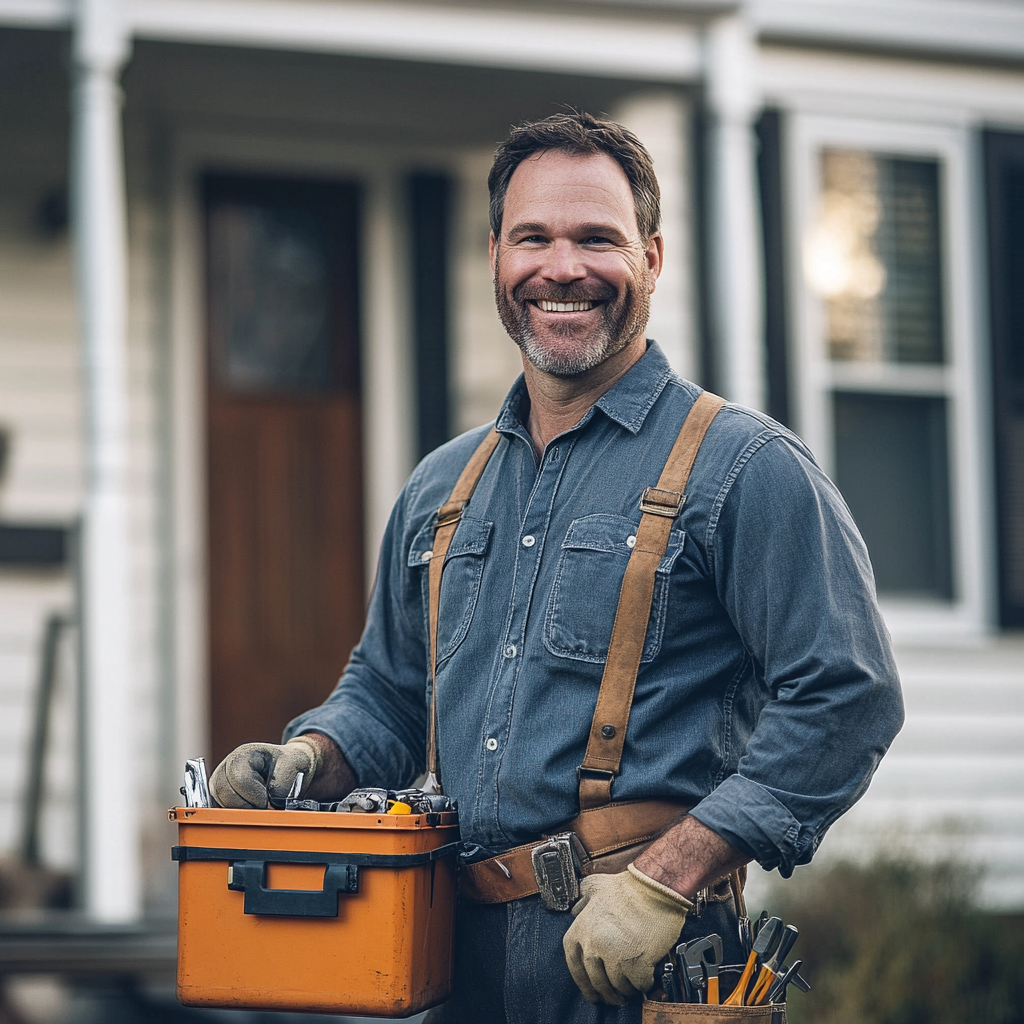
Um homem com uma caixa de ferramentas | Fonte: Midjourney
“Engraçado, ela nunca mencionou quanto trabalho isso daria.”
Uma noite, enquanto eu estava sentado na varanda observando o sol se pôr abaixo do horizonte, um leve cheiro de fumaça chegou até mim. Então eu vi — a casa da fazenda envolta em chamas.
“Não!” gritei, correndo em direção ao fogo.
Os vizinhos chegaram, carregando água e gritando comandos. Ross agarrou meu braço.

Uma mulher preocupada no meio de um incêndio | Fonte: Midjourney
“É muito perigoso!”
“Os animais—”
“Eles estão seguros”, ele me garantiu, me segurando enquanto o fogo consumia a casa.
Pela manhã, Felicity estava em meio às cinzas, seu tom cortante. “Isso muda as coisas, não é?”
“Não”, eu disse firmemente. “A fazenda ainda está aqui.”

Um campo de cinzas | Fonte: Midjourney
“Você está vivendo em um celeiro, Diana. Acabou. Apenas venda.”
“Eu vou descobrir.”
“Você está sendo teimoso”, ela zombou. “Não sobrou nada.”
Mas havia. Eu tinha minhas memórias, o amor da vovó e a própria terra.

Um close-up de um par de olhos | Fonte: Midjourney
Nas semanas seguintes, me joguei na reconstrução. Com a orientação de Ross, consertei cercas, cultivei campos e plantei novas safras.
“Você se saiu bem, Diana”, ele disse uma noite enquanto descansávamos nos degraus da varanda. “Sua avó ficaria orgulhosa.”
“Obrigada”, murmurei, olhando para o horizonte. “Acho que agora entendo por que ela fez isso.”
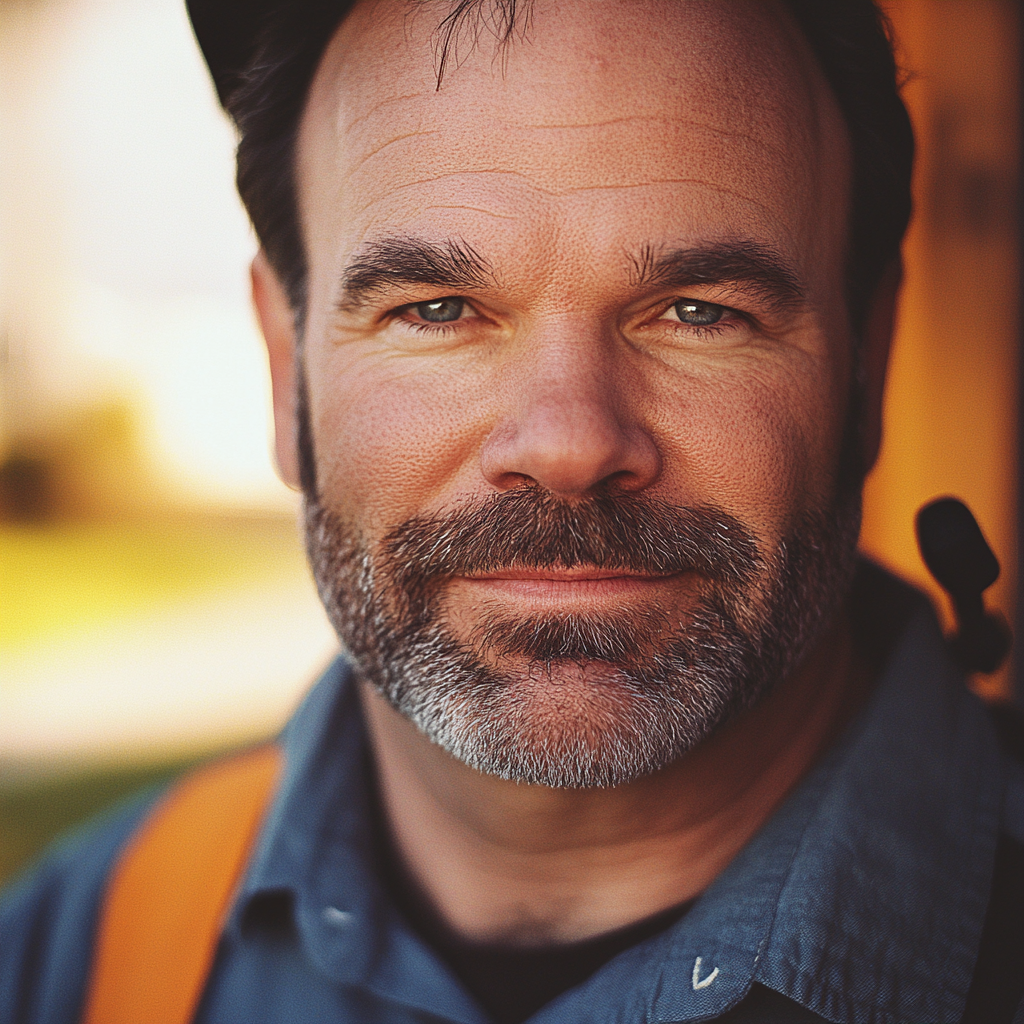
Um close-up de um homem | Fonte: Midjourney
Ele assentiu. “Ela sabia que a fazenda precisava de alguém como você.”
Três meses depois, o advogado nos convocou para a segunda leitura do testamento da vovó. Felicity chegou, sua expressão presunçosa irritando meus nervos desgastados.

Uma mulher com o rosto parcialmente à mostra | Fonte: Midjourney
O advogado leu: “Para minhas queridas Felicity e Diana, chegou a hora de revelar o verdadeiro zelador da fazenda. Felicity, eu esperava que essa experiência aprofundasse sua conexão com o legado da nossa família. Diana, eu confio que você provou ser a guardiã da fazenda. Eu deixo a fazenda para você, com efeito imediato.”
O rosto de Felicity se contorceu de raiva. “Isso é absurdo! Ela queimou a casa!”

Uma velha escrevendo | Fonte: Midjourney
Jack se levantou, mostrando um recibo. “Engraçado o suficiente, quando contei ao meu amigo no posto de gasolina próximo sobre o incêndio, ele me disse que Felicity comprou gasolina naquele dia.”
Pego, Felicity atacou. “Tudo bem! Eu só queria que ela fosse embora!”
A voz do advogado cortou a tensão. “Diana, a fazenda é sua.”

Um advogado em seu escritório | Fonte: Pexels
A fazenda se tornou meu santuário. Seus campos e animais me aterraram, e pela primeira vez em anos, me senti inteiro.
Uma noite, quando o céu ficou lilás, Ross se juntou a mim na varanda.
“Que tal aquele jantar que te prometi?”, ele perguntou, com um sorriso tímido no rosto.
“Quer saber? Acho que finalmente tenho tempo.”

Um homem e uma mulher compartilhando uma refeição à luz de velas | Fonte: Midjourney
E enquanto planejávamos nossa noite, percebi que a fazenda não era apenas meu passado ou presente. Era meu futuro, cheio de promessas e amor.
Homem compra uma fazenda abandonada com seus últimos US$ 1 mil e encontra uma bolsa de dinheiro ao verificar o sótão
Comprei uma fazenda por US$ 1.000. Parecia um milagre, já que minha irmã tinha me enganado e me roubado da herança. Depois de assinar a terra dos meus pais com base nas mentiras dela, fiquei sem nada. Esta fazenda era tudo o que eu podia pagar com o pouco dinheiro que eu tinha do fundo da faculdade dos meus filhos.

Um homem ao telefone | Fonte: Pexels
Quando James, o vendedor, me apressou no negócio, eu deveria saber que algo estava errado. Ele insistiu que eu não precisava visitar a fazenda primeiro. “Confie em mim”, ele disse, sorrindo. “É um roubo.”
Assinei os papéis e entreguei meus últimos $1000. Minha esposa, Lena, e eu pegamos nossas duas crianças e chegamos dois dias depois. No momento em que entramos na entrada coberta de mato, meu estômago afundou.
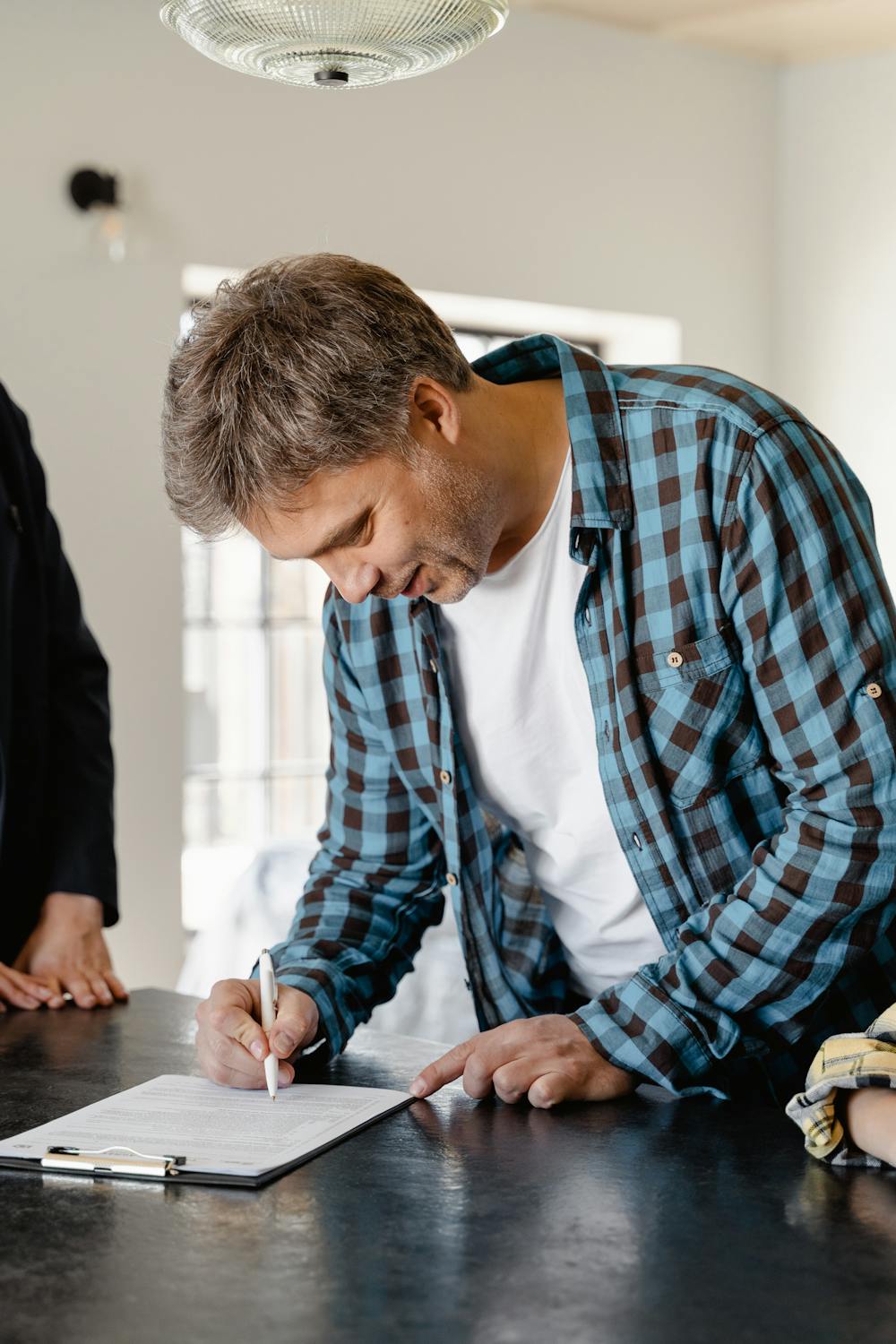
Um homem assinando papéis | Fonte: Pexels
O lugar estava uma ruína. A casa mal estava de pé, com tinta descascada e janelas quebradas. Os campos estavam selvagens com ervas daninhas. “É aqui que vamos recomeçar”, eu disse a Lena, embora já estivesse me questionando se tinha cometido um erro.
“Nós vamos consertar isso”, ela disse, segurando meu braço. Sua fé em mim sempre me ajudou a superar.

Uma casa velha | Fonte: Pexels
Desde o primeiro dia, arregaçamos as mangas. Lena e eu trabalhamos incansavelmente, plantando novas safras e consertando o que podíamos. Não tínhamos muito, mas tínhamos esperança.
Logo, os vizinhos começaram a notar nossos esforços. Eles pararam para comprar ovos ou vegetais, curiosos sobre como havíamos transformado o lugar. Eu nunca tinha trabalhado tanto na minha vida, mas cada dólar que eu ganhava parecia uma vitória.
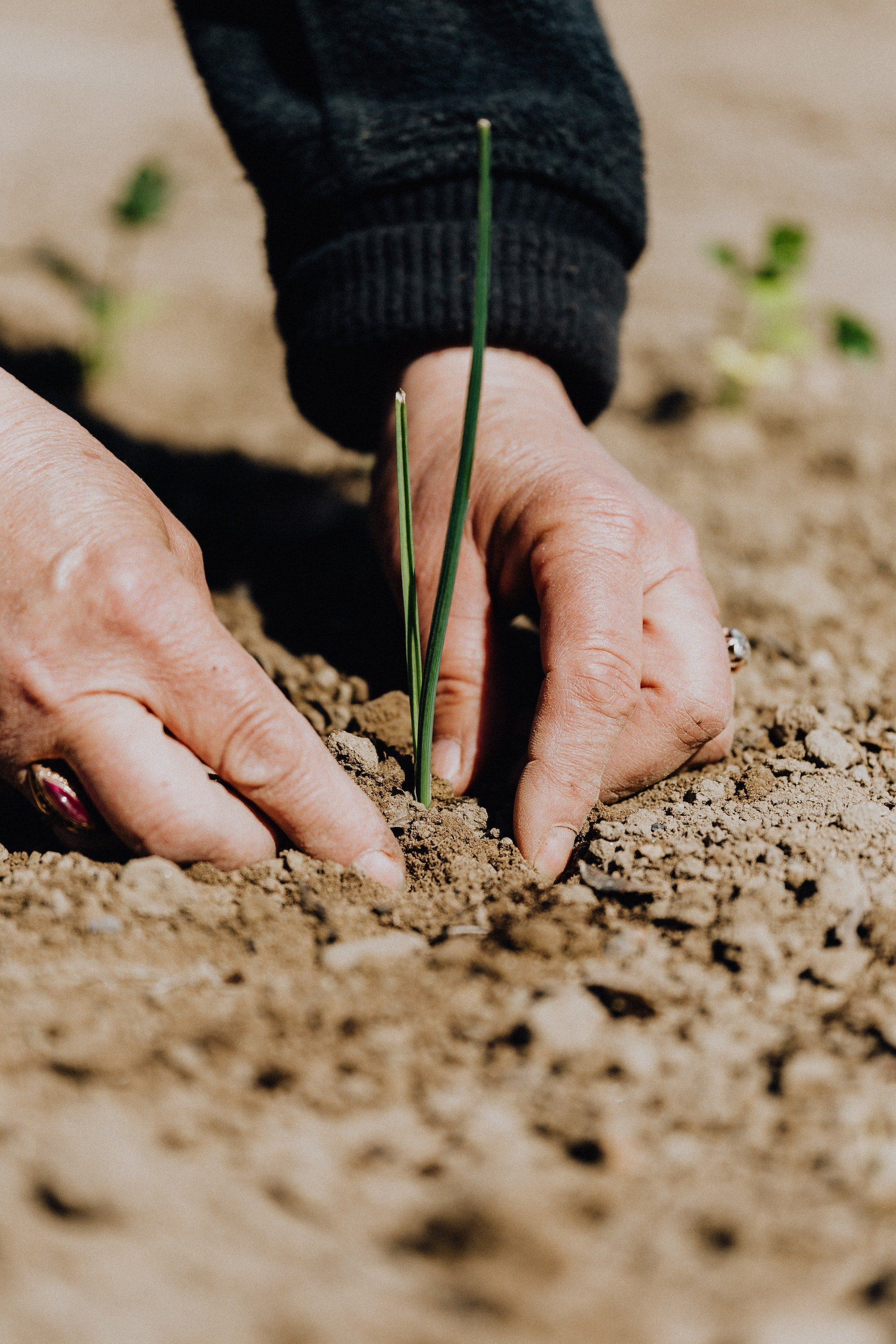
Um par de mãos plantando | Fonte: Pexels
Então, uma tarde, dois homens apareceram. Eles me disseram que a fazenda tinha uma dívida deixada por seu antigo dono, Sebastian. “Você é responsável por pagar agora”, disse um deles.
Foi quando me dei conta: James e seus irmãos me venderam este lugar para escapar de seus próprios problemas. Senti uma onda de raiva, mas a engoli. Não adiantava chorar por isso agora. Paguei um pequeno depósito para ganhar tempo e resolvi encontrar uma maneira de quitar a dívida.

Um homem irritado | Fonte: Freepik
No dia seguinte, enquanto limpava o sótão, tropecei em um velho saco plástico preto enfiado em um armário. Quando o tirei, ele rasgou, e maços de dinheiro caíram no chão.
Meu queixo caiu. “Lena!”, chamei, mas minha voz tremeu. Encontrei outra bolsa, também cheia de dinheiro, e um envelope enfiado dentro. Era uma carta.
“Se você está lendo isso, meus filhos ignoraram meu testamento”, começava a carta. Era de Sebastian, o antigo dono da fazenda.

Uma nota escrita à mão | Fonte: Pexels
Ele escreveu sobre o quanto amava a fazenda e como ela estava em sua família há gerações. Ele esperava que seus filhos a valorizassem, mas eles não queriam trabalhar duro.
“Estou deixando esse dinheiro para quem quer que cuide da minha terra”, dizia a carta. “Por favor, invista na fazenda e faça-a florescer. Quero que ela prospere, mesmo que meus filhos não honrem meu desejo.”
Lágrimas brotaram em meus olhos quando terminei de ler. Parecia que Sebastian estava falando diretamente comigo. O sonho dele se tornou meu naquele dia.

Um homem chorando com uma nota | Fonte: Pexels
Usei parte do dinheiro para pagar a dívida e investi o restante na fazenda. Ao longo dos meses, Lena e eu a transformamos em um lugar de beleza e propósito. Os campos estavam exuberantes com plantações, o celeiro estava cheio de animais saudáveis e a casa se tornou um lar aconchegante para nossa família.
Vizinhos e até pessoas de cidades próximas visitavam a fazenda. Vendíamos produtos frescos, leite e ovos. Eu a chamei de “Fazenda de William e Sebastian” para homenagear os homens que amaram esta terra antes de mim.

Um carrinho de vendas | Fonte: Pexels
Quando o sucesso da fazenda se tornou uma história local, James e seus irmãos voltaram, com seus sorrisos falsos e planos gananciosos.
“Parece que o negócio está crescendo!” James disse. “Por que você não divide os lucros conosco?”
Eu ri. “Eu paguei pela fazenda e trabalhei dia e noite para restaurá-la. Você não moveu um dedo.”

Um homem sorridente | Fonte: Pexels
James desviou o olhar, envergonhado, mas eu podia ver o desespero em seus olhos. Eles estavam se afogando em dívidas.
Em vez de mandá-los embora, ofereci-lhes empregos. “Se vocês estiverem dispostos a trabalhar duro, eu lhes pagarei um salário justo”, eu disse. Eles hesitaram, mas acabaram concordando.
Vê-los lutar na fazenda me deu uma visão das frustrações do pai deles. Eles nunca entenderam o valor do trabalho duro, mas, lentamente, estavam aprendendo.

Um homem e uma mulher trabalhando em uma fazenda | Fonte: Pexels
Um dia, James encontrou uma nota de $500 no sótão e me devolveu. Eu sorri e disse: “Esse é seu bônus pela honestidade.” Na verdade, eu a coloquei lá para testá-lo.
A fazenda se tornou um tesouro de família. Ensinei meus filhos a cultivar plantações e cuidar de animais, assim como Sebastian queria para seus filhos.

Um campo verde | Fonte: Pexels
Quando meus filhos foram para a faculdade, eles ainda voltaram para ajudar durante as férias. Ao contrário de Sebastian, eu nunca me preocupei com o futuro da fazenda. Eu sabia que ela estaria em boas mãos.
A carta de Sebastian me deu mais do que dinheiro, me deu um propósito. Sua fazenda salvou minha família, e eu garanti que seu sonho continuasse.

Um homem confiante em uma fazenda | Fonte: Pexels
Homem pobre realiza o último desejo da falecida avó de reconstruir sua casa e encontra porão enterrado ao lado dela
Quando minha avó faleceu, meu irmão Walter e eu fomos chamados ao escritório do advogado. Walter estava emocionado, esperando uma herança pesada. Mas eu? Eu só queria honrar o último desejo dela e reconstruir a casa que meu avô construiu para ela.

Um advogado falando | Fonte: Pexels
Em seu leito de morte, a avó fez um apelo sincero. “Esta casa significa o mundo para mim. Seu avô a construiu com amor, e eu prometi que ela ficaria em nossa família por gerações. Por favor, reconstrua-a em sua memória.”
Prometi a ela que faria isso. Walter assentiu, mas percebi que ele não estava sendo sincero.
No escritório do advogado, soubemos que ela havia deixado a casa para nós. É isso. Sem dinheiro, sem joias, apenas a casa velha. O rosto de Walter se contorceu de raiva.

Um homem zangado com um suéter marrom | Fonte: Freepik
“Isso não pode estar certo! E o dinheiro dela? Seus objetos de valor?” ele exigiu.
O advogado explicou que tudo já havia sido liquidado ou usado. Tudo o que restava era a casa. Furioso, Walter saiu furioso.
“Faça o que quiser com ele”, ele retrucou para mim. “Não vou desperdiçar meu tempo ou dinheiro naquele lugar.”

Dois homens discutindo | Fonte: Freepik
Fiquei desapontado, mas não surpreso. Walter sempre se preocupou com o que ele poderia ganhar, enquanto eu valorizava as coisas que realmente importavam.
Eu queria honrar o desejo da vovó, mas não tinha dinheiro. Minha família mal conseguia sobreviver, e eu tinha dívidas para pagar. Ainda assim, não podia abandonar a promessa que tinha feito.

Um homem frustrado | Fonte: Pexels
Usei cada dólar das minhas economias e peguei emprestado de um amigo próximo para começar a reconstruir a casa. Foi um trabalho duro. Na maioria das vezes, eu estava lá sozinho, martelando, pintando e consertando.
Um dia, enquanto cavava no jardim da frente para consertar o sistema de esgoto, minha pá atingiu algo sólido. Curioso, descobri uma escotilha de madeira. Abaixo dela, havia uma escada curta que levava a uma sala subterrânea.
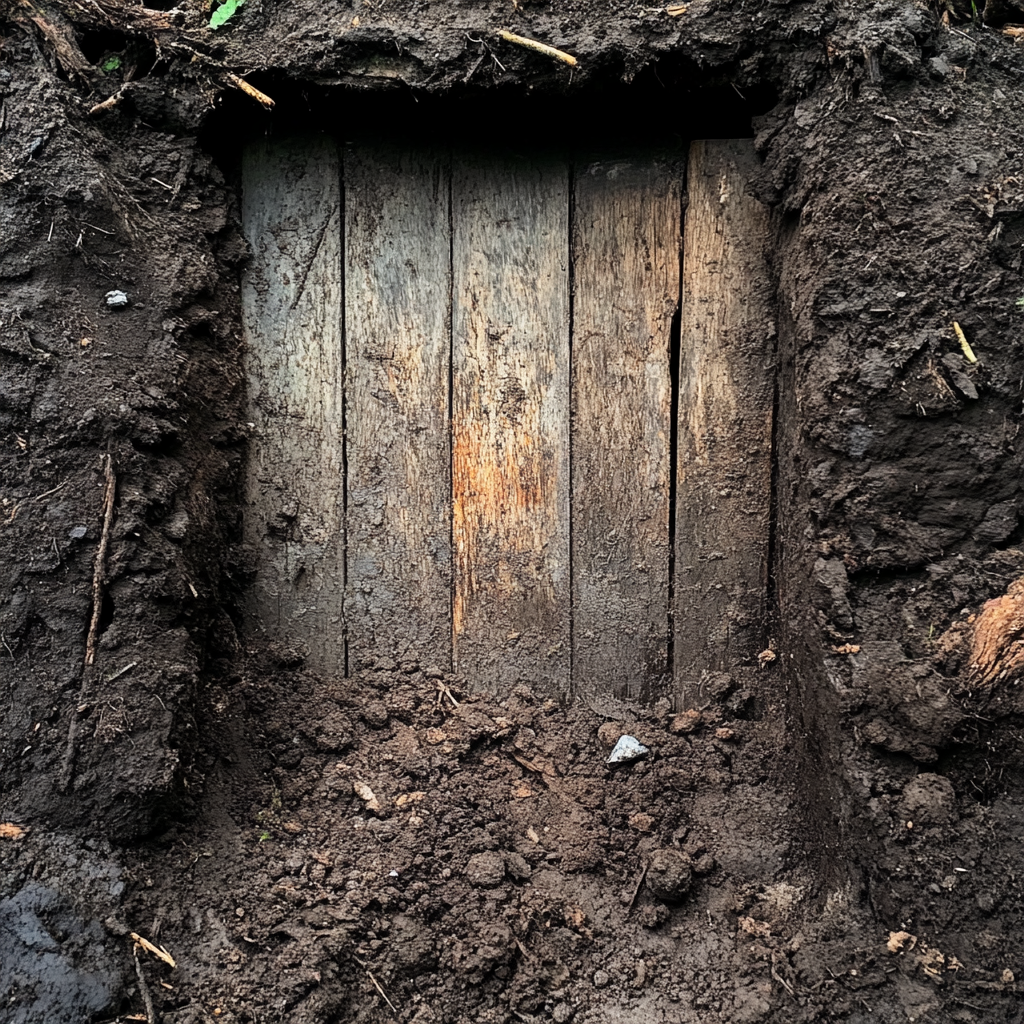
Uma escotilha de madeira | Fonte: Pexels
Com uma lanterna na mão, desci. No meio da sala havia um velho baú de madeira com uma carta em cima. Minhas mãos tremiam quando o abri.
A carta era do meu avô.
“Para meu neto Harry,

Um homem segurando cartas | Fonte: Freepik
Se você está lendo isso, você honrou o desejo da sua avó, e por isso, eu agradeço. Pedi a ela para lhe contar sobre a casa porque sempre acreditei na sua integridade e amor pela família. Se Walter estiver com você, estou feliz que ele tenha mudado de ideia.
Dentro deste baú estão itens que pertencem à nossa família. Leve esta carta ao meu advogado, e você encontrará o que merece. Sua avó e eu estamos cuidando de você. Aproveite esta casa e valorize sua família.
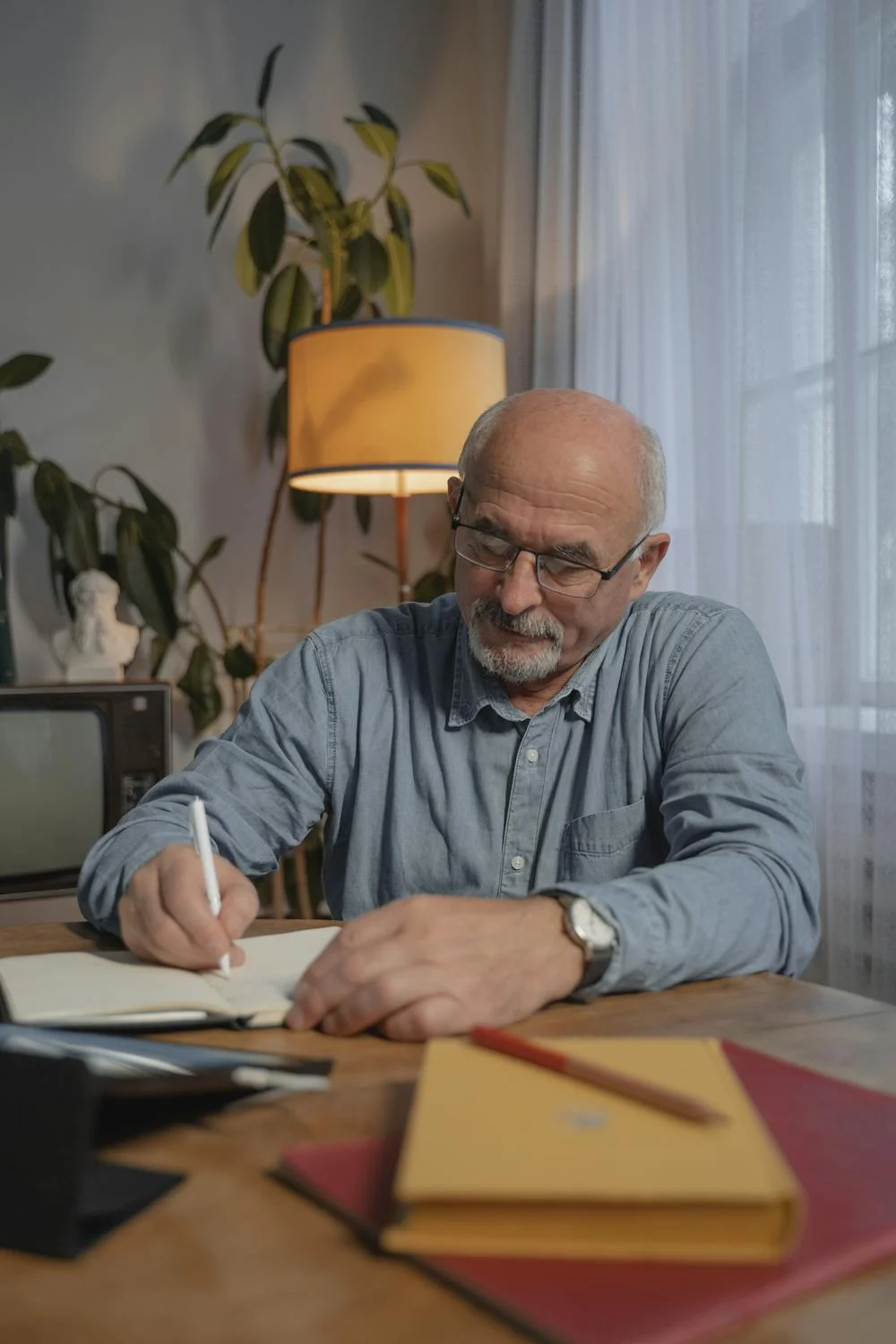
Um homem idoso escrevendo | Fonte: Pexels
Com amor, vovô.”
Lágrimas encheram meus olhos. Meu avô sempre foi um homem de sabedoria e previsão, e mesmo na morte, ele encontrou uma maneira de me guiar.
Dentro do baú havia álbuns de família, relíquias de família e uma pequena caixa de joias dos meus avós. Agarrei a carta e fui direto ao advogado deles.
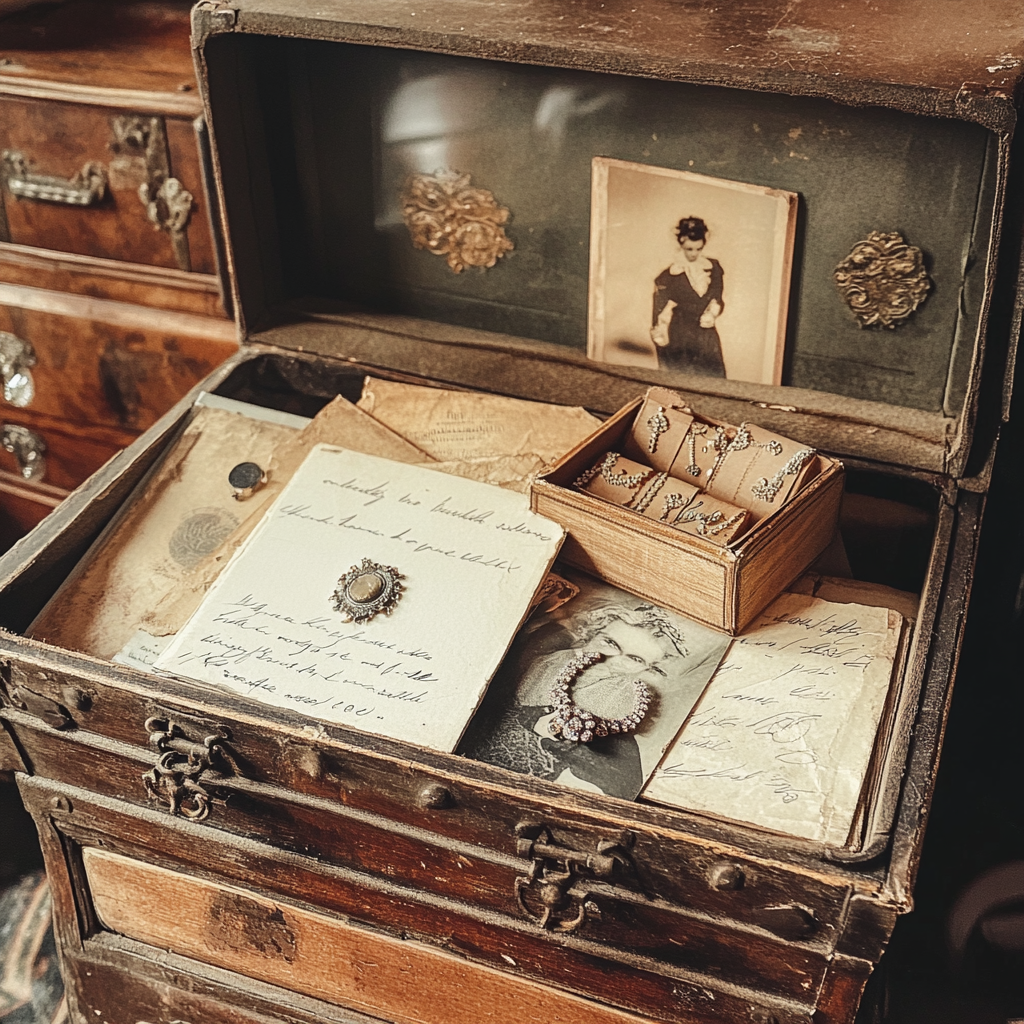
Um baú com relíquias de família | Fonte: Midjourney
O advogado sorriu quando lhe entreguei a carta. “Seu avô sempre disse que seria você quem me traria isso”, ele disse.
Senti uma onda de gratidão quando ele explicou os próximos passos. “Seu avô deixou uma conta bancária com $300.000 para você. Se você não tivesse reconstruído a casa, o dinheiro seria destinado à caridade.”
Minha respiração ficou presa na garganta. US$ 300.000. Era mais dinheiro do que eu jamais sonhei em ter.

Um homem chocado, mas feliz | Fonte: Pexels
Eu sabia o que tinha que fazer. Doei $100.000 para instituições de caridade para idosos, em homenagem aos meus avós. O resto, usei para pagar minhas dívidas e terminar de reconstruir a casa.
A casa se tornou um lar novamente, assim como a vovó e o vovô gostariam. Minha esposa e eu vendemos nossa antiga casa e nos mudamos para lá. Começamos um pequeno café, financiado pelo dinheiro restante, e colocamos nossos corações para torná-lo um sucesso.

Um pequeno café | Fonte: Pexels
Logo, nosso negócio decolou e, pela primeira vez, ficamos livres do estresse financeiro. A casa se tornou o centro de nossas vidas, um lugar cheio de amor e risos, assim como tinha sido para meus avós.
Walter? Ele nunca apareceu, mas eu fiz as pazes com isso. Esta casa é o legado da minha família, um símbolo de amor e trabalho duro passado de geração em geração.

Um casal feliz em frente à sua casa | Fonte: Pexels
As palavras do meu avô ficaram comigo: “Valorize sua família”. E é exatamente isso que farei, garantindo que esta casa permaneça em nossa família pelos próximos anos.
Gostou dessas histórias? Clique aqui para ler mais três!
Às vezes, as descobertas que mais mudam a vida estão escondidas no comum. Nesta compilação, famílias descobrem segredos deixados para trás por entes queridos, revelando verdades ocultas sobre ganância, amor e resiliência.
Este trabalho é inspirado em eventos e pessoas reais, mas foi ficcionalizado para fins criativos. Nomes, personagens e detalhes foram alterados para proteger a privacidade e melhorar a narrativa. Qualquer semelhança com pessoas reais, vivas ou mortas, ou eventos reais é mera coincidência e não intencional do autor.
O autor e a editora não fazem nenhuma reivindicação quanto à precisão dos eventos ou à representação dos personagens e não são responsáveis por nenhuma interpretação errônea. Esta história é fornecida “como está”, e quaisquer opiniões expressas são as dos personagens e não refletem as opiniões do autor ou da editora.

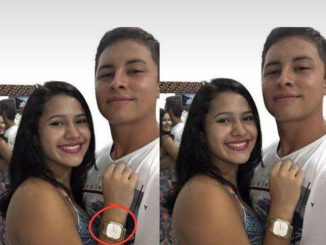

Leave a Reply